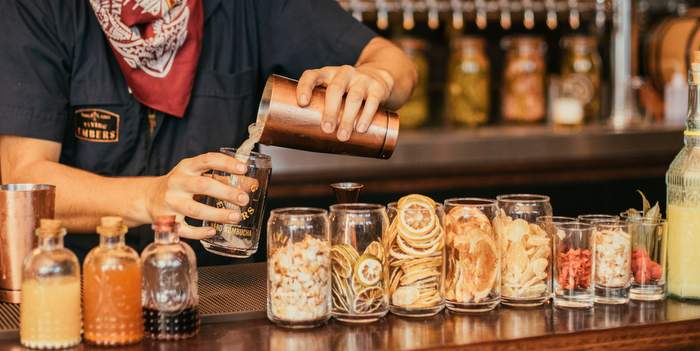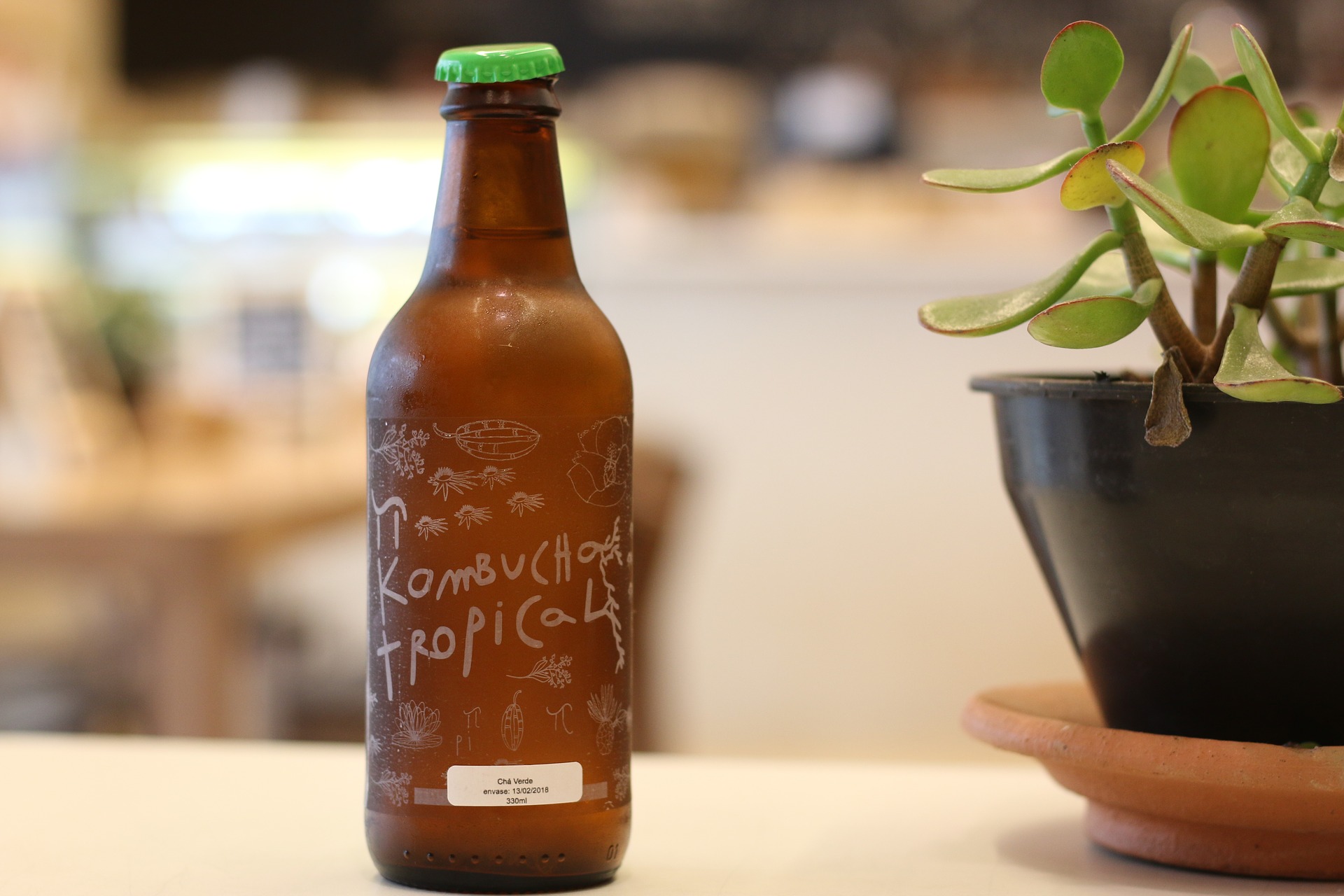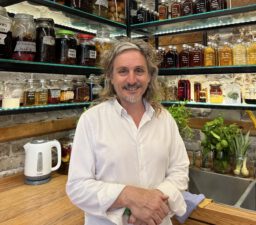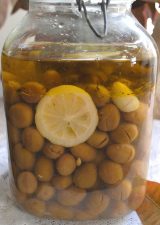Kombucha is tea fermented over a floppy, gelatinous pad, the mother culture that provides friendly bacteria and yeasts. It’s said that kombucha originated in China centuries ago, traveling along with precious tea leaves over the Silk Road, eventually reaching Europe. The fermented tea is rich in probiotics, vitamins C, B6 and B12, and acetic and lactic acids. It has 0.5% alcohol or less. The mother culture is referred to as the SCOBY – a symbiotic colony of bacteria and yeasts.
Kombucha has long been home-brewed in China, Japan, Korea, and Eastern Europe. Its popularity in the United States and Western Europe rises and falls, as in the AIDS epidemic of the late 1980s and early ’90s, when people drank it devotedly and to excess, hoping to raise immunities and create a healthier gut microbiodome immediately. Read our review on Sandor Katz who recommended fermentation and kombucha against immune suppressing diseases like HIV-AIDS.

Sandor Katz
But while kombucha’s properties make it a valuable part of a healthy lifestyle, it isn’t a miracle cure. One, or at the most two cups a day will supply all the probiotics, vitamins, minerals and acids that an adult can safely absorb at once. More than that would be like eating a gallon of sauerkraut or kimchi in hopes of getting all that good stuff in one go. Imagine what that would do to your digestion.
I brewed kombucha tea myself for years, and kept it in a big mason jar, with its culture, in a cupboard. It was tasty, with a little fresh lemon juice and honey added. My children thought the dark liquid with its placenta-like floating culture looked like an otherwordly life form. They called it “the alien in the cupboard.” When I moved house, I gave my SCOBY away, but now I miss it and am looking for a new one.
By adding more sugar and yeast, and fermenting the tea twice or even three times, it’s possible to obtain kombucha with 4.5 alcohol by volume, and even as much as 7%. Following the wave of interest in healthy alternative cocktails, some manufacturers are now producing hard kombucha, also known as “boozy booch” in a variety of flavors.
The American Tax and Trade Bureau requires some companies to label hard kombucha as beer. But beer, it’s not. Beer is made from grains, and kombucha is made from tea.
Is hard kombucha good for you alcohol?
Does high-alcohol kombucha confer the same health benefits as the traditional, almost alcohol-free brew?
No, no really. It’s proved to have fewer calories and less sugar than grain-based beers, but makers of hard kombucha don’t claim their products have probiotic properties. The amount of alcohol in the drink simply kills probiotics off.
Hard kombucha’s appeal is to those seeking a healthier and gluten-free alternative to conventional beer and wine.
Hard kombucha is part of the “good for you alcohol” meta trend. Other examples of this meta trend include non-alcoholic gin, hard cold brew, White Claw and Vizzy.
As the alcohol content varies from brand to brand, it’s a good idea to examine the labels and choose the hard kombucha that suits your style.
Hard kombucha is slightly sour, fizzy, and comes flavored with all kinds of fruit, flowers, and herbs. Ginger-tangerine or berry-hibiscus kombucha, anyone? Sounds good to me.
Hard kombucha brands in the United States

Flying Embers, one of the more intriguing better-for-you alcohol brands out there, is opening up Flying Embers Brewery & Social Club in a reconstructed 100 year old warehouse building in downtown Los Angeles’ historic arts district.
Flying Embers manufacturer Fermented Sciences raised $35M in a Series B round, led by PowerPlant Ventures and Ecosystem Integrity Fund. Other hard kombucha brands to follow?
GT’s
Kombrewcha
Boochcraft
KYLA (Full Sail Brewing)
Wild Tonic
New Holland Brewing
Unity Vibration
JuneShine




